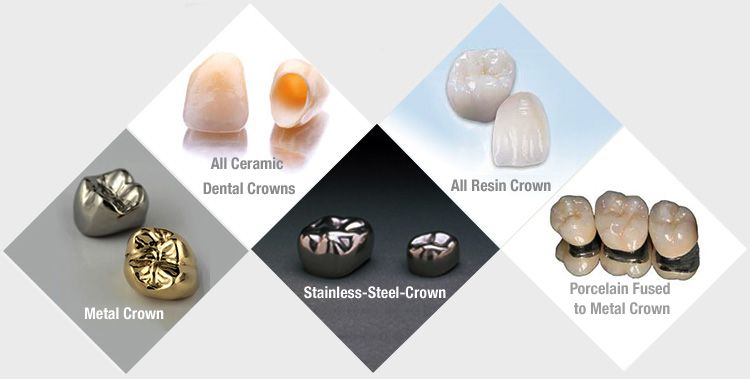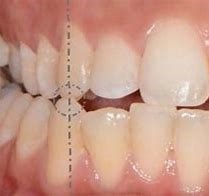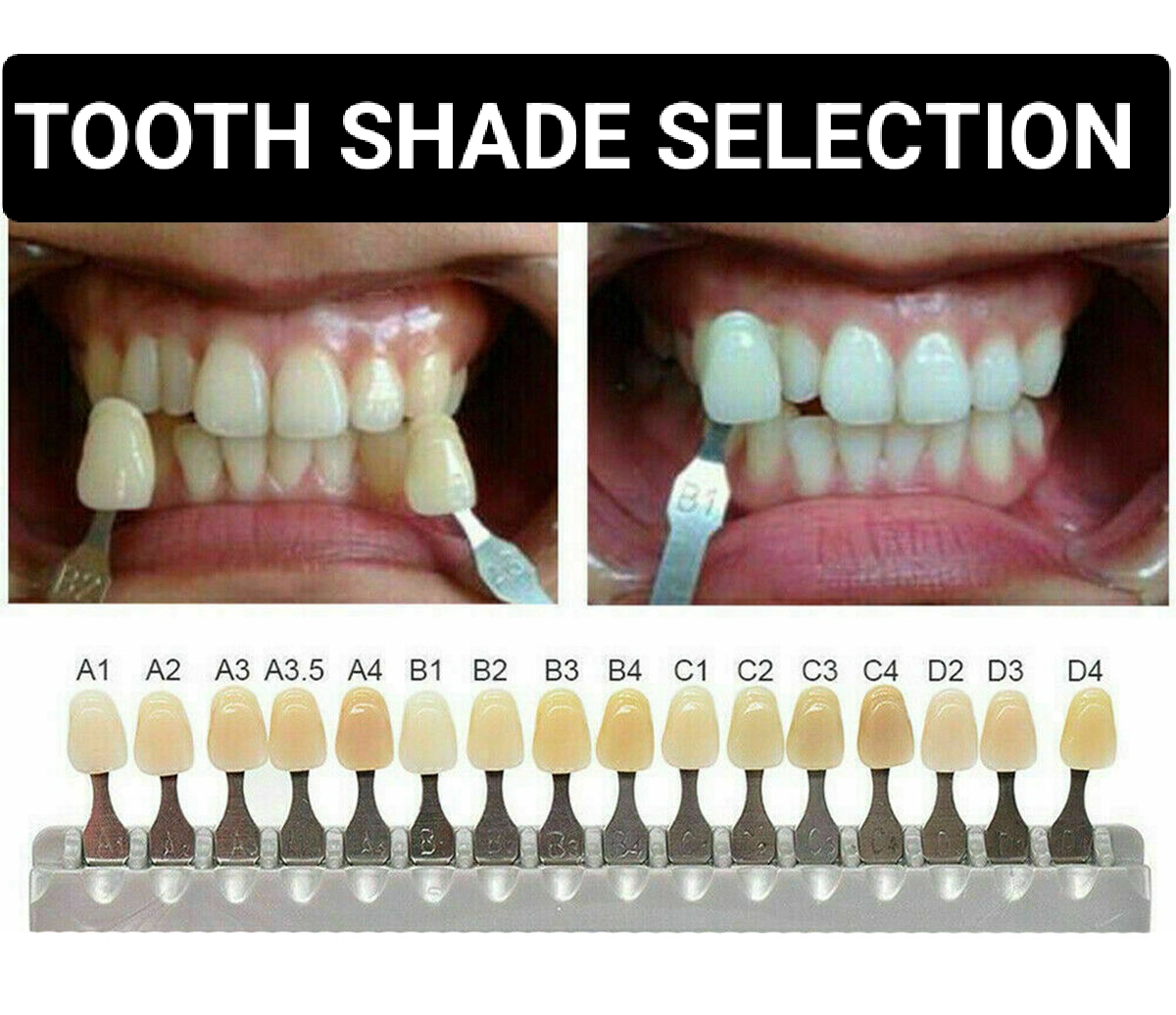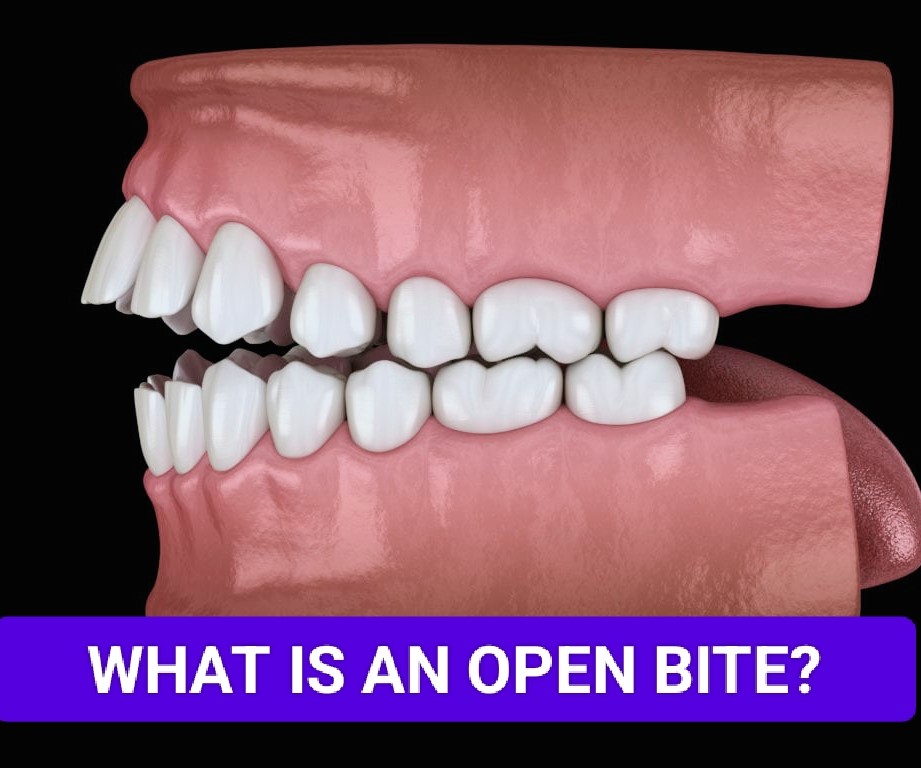The choice of crown material depends on various factors, including the location of the tooth, the amount of tooth structure remaining, the patient’s oral habits, and the patient’s budget. A dentist will evaluate these factors to determine the best crown option for each patient.
There are several types of crowns used in dentistry:

1. Porcelain-fused-to-metal (PFM) crowns –
These crowns have a metal substructure that is covered by a layer of porcelain, which provides a good combination of strength and aesthetics.
– Tooth structure required: The tooth that will receive the crown needs to be reduced by around 1.5-2mm on all sides to accommodate the thickness of the crown.
Advantages:
– Aesthetically pleasing due to their tooth-like appearance.
– Durable and long-lasting.
– Good option for both back and front teeth.
Disadvantages:
– More tooth structure is removed compared to all-ceramic crowns.
– The metal substructure may show through at the gum line, causing a black line to appear over time.
– May not be a good option for patients with metal allergies.
Indications:
– Restoration of severely damaged, broken, or decayed teeth.
– Covering dental implants.
– Restoring teeth after endodontic treatment.
2. All-ceramic Dental crowns –
These are made entirely from ceramic material and provide excellent aesthetics. They are more brittle than other types of crowns and are not as strong, making them better suited for use on anteriors and premolars.
– Tooth structure required: The tooth that will receive the crown needs to be reduced by around 1.5-2mm on all sides to accommodate the thickness of the crown.
Advantages:
– Highly aesthetic due to their ability to mimic the natural tooth colour and translucency.
– No metal is used, meaning no dark lines at the gum line.
– Ideal for people with metal allergies.
Disadvantages:
– Not as strong as metal-based crowns.
– More prone to chipping or breaking.
Indications:
– Restoration of front teeth or other highly visible areas.
– Patients with a metal allergy.
– Patients who want the most natural-looking restoration.
3. Zirconia dental crowns –
Porcelain fused zirconia (pfz) and monolithic zirconia are 2 types of zirconia crowns. They are very strong and highly durable. They combine the strength of PFM crowns with the aesthetics of all-ceramic crowns.
– Tooth structure required: The tooth that will receive the crown needs to be reduced by around 1.5-2mm on all sides to accommodate the thickness of the crown.
READ IN DETAIL – WHAT ARE ZIRCONIA CROWNS?
Advantages:
– Extremely durable and strong, making them a good option for back teeth.
– Tooth-like translucency.
– No metal is used which makes them a good option for patients with metal allergies.
Disadvantages:
– More tooth structure needs to be removed compared to all-ceramic crowns.
– Costlier compared to pfm and metal crowns.
Indications:
– Restoration of molars and premolars.
– Patients with metal allergies.
– Patients who require a strong and durable restoration.
READ IN DETAIL – WHAT ARE ZIRCONIA CROWNS?
5. Stainless steel dental crowns –
These crowns are pre-formed and used mostly on children’s primary teeth. SS crowns provide a temporary but reliable solution and are also used to avoid the lengthy process of preparing the tooth to receive a crown.
– Tooth structure required: Unlike other types of crowns, the tooth that will receive the crown does not need to be reduced much.
Conclusion,
The right type of crown for a particular patient depends on their unique case and individual needs. It is best to consult with a dentist to determine which type of restoration best suits their needs.
FAQs
Here are some frequently asked questions regarding dental crowns:
1. What is a dental crown?
A dental crown is a tooth-shaped cap that is placed over a damaged or decayed tooth to restore its shape, size, strength, and appearance.
2. What are the types of dental crowns?
There are four types of dental crowns: ceramic, porcelain fused to metal, all-metal, and resin.
3. How long do dental crowns last?
The lifespan of dental crowns depends on the material used, how well they are cared for, and other factors. Typically, dental crowns last between 5-15 years, but they can last longer with proper care.
4. How are dental crowns placed?
The tooth is prepared by being filed down to make space for the dental crown. Then, an impression is made of the tooth and surrounding teeth. This impression is sent to the dental lab, where the crown is custom-made. Once the crown is ready, it is placed over the tooth and cemented in place.
5. Are dental crowns painful?
The procedure for placing a dental crown is performed under local anesthesia. Patients may experience some discomfort and sensitivity after the procedure, but this usually subsides within a few days.
6. Can a dental crown be repaired if it breaks or becomes damaged?
Yes, damaged or broken crowns can usually be repaired with patches or a crown replacement procedure.
7. What is the cost of a dental crown?
The cost of a dental crown depends on the material used, location, and the dentist’s fee. The average cost of a dental crown ranges between $800 to $1,500.
8. Does getting a dental crown require multiple visits to the dentist?
Typically, getting a dental crown requires at least two visits to the dentist. The first visit is to prepare the tooth and make an impression, and the second visit is to place the crown.
9. Can dental crowns be used to replace missing teeth?
Yes, dental crowns can be used to replace missing teeth when combined with a dental implant or used as part of a dental bridge.
10. Do dental crowns require special care?
Dental crowns do not require any special care than normal oral hygiene practices such as regular brushing, flossing, and bi-annual dental check-ups.
RELATED ARTICLE :- ZIRCONIA VS PORCELAIN DENTAL CROWNS




One thought on “DENTAL CROWNS – (CAPPING) 101: AN AMAZING INSIGHT TO ALL YOUR QUERIES”